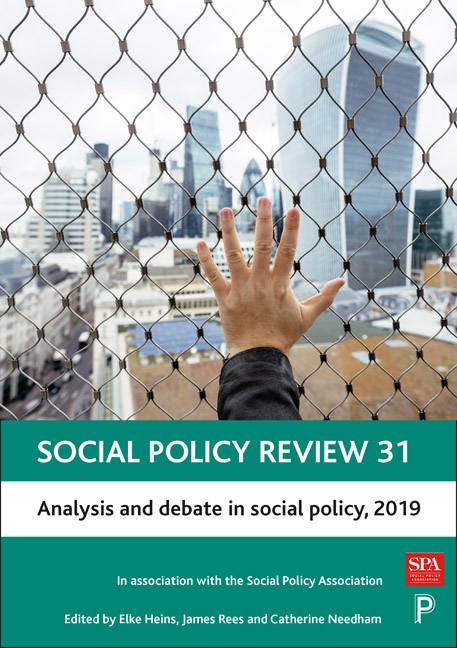5 - From welfare state to participation society: austerity, ideology or rhetoric?
Published online by Cambridge University Press: 30 April 2022
Summary
Introduction
On 19 July 2010, then Prime Minster David Cameron delivered his so-called ‘Big Society’ speech in Liverpool (Cameron, 2010). He stated that:
For a long time, the way government has worked – top down, top-heavy, controlling – has frequently had the effect of sapping responsibility, local innovation and civic action. It has turned many motivated public-sector workers into disillusioned, weary puppets of government targets. It has turned able, capable individuals into passive recipients of state help with little hope for a better future. It has turned lively communities into dull, soulless clones of one another. So we need to turn government completely on its head. The rule of this government should be this: if it unleashes community engagement, we should do it; if it crushes it, we shouldn’t. (Cameron, 2010)
Cameron's ideas got a mixed reception at the time. Whereas some critics considered it an admirable and genuine attempt to unite a conservative communitarian agenda with social aspirations, other critics dismissed it as ‘just another argument for austerity’ or ‘a fig-leaf for neo-liberalism’ (see Kisby, 2010; Jordan, 2011; Corbett and Walker, 2013). According to Kisby (2010), the ideas of the Big Society never came to full realisation as the ‘Great Recession’ reached the UK in 2010 and turned the political and economic landscape upside down. This may be one of the reasons why the ideas of the Big Society have not fundamentally rebalanced the responsibilities between the state and society in the UK. An audit by non-profit agency Civil Exchange in 2015 even claimed that the results of the Big Society programme were largely negative (Civil Exchange, 2015).
However, Cameron's ideas of the Big Society were part of a bigger ideology that Wiggan (2011) refers to as a ‘civic conservative’ perspective. This ideology emphasises that social problems and the decline of civil society are exacerbated by a big state (see also Sage, 2012: 371). Therefore, elements of the Big Society ideology also found their ways to other countries. One of these countries is the Netherlands.
In his first annual address to Parliament in September 2013, after succeeding his mother in April 2013, the Dutch King Willem- Alexander announced the end of the era of the welfare state and proclaimed the ‘Participation Society’.
- Type
- Chapter
- Information
- Social Policy Review 31Analysis and Debate in Social Policy, 2019, pp. 101 - 124Publisher: Bristol University PressPrint publication year: 2019



